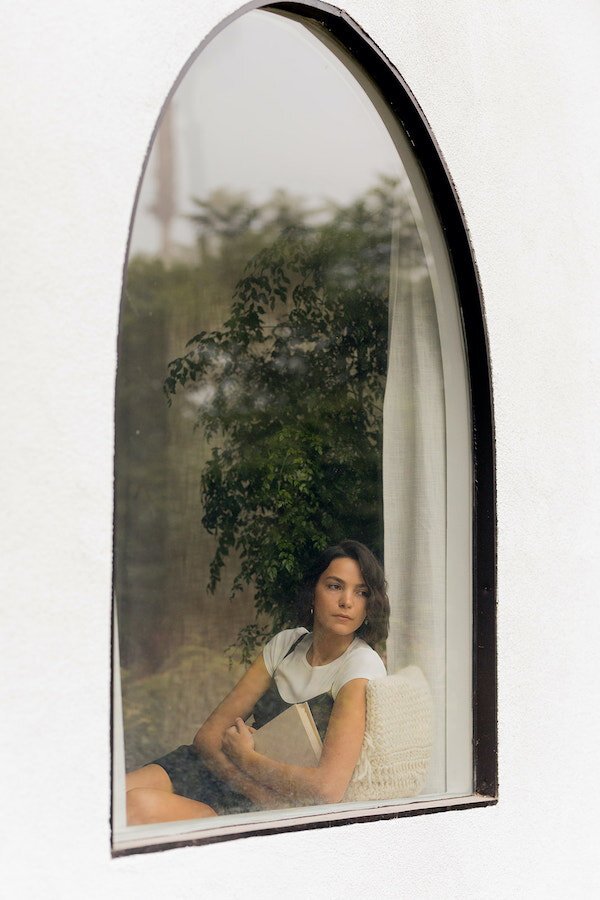
Do We Really Need Closure After A Relationship Ends?
When is closure helpful, and when is it hurtful?
Last year, after ending a long term relationship, I found myself being ignored and receiving too much attention, all at the same time. It was a few months post-breakup and I went on a date with a guy I had been texting for a few weeks. After the date, I never heard from him again. We had a fine time—he wasn’t a soul mate—but I felt rejected and found myself desperately wanting an explanation for his behavior.
“We both wanted to be comforted by the person who’d hurt us. We wanted closure.”
Then my ex started reaching out to me again under the guise of moving on. I recognized the same behavior from my ex in myself—we both wanted to be comforted by the person who’d hurt us. We wanted closure.
I realized then that people often desire to “tie up loose ends at the end of relationships,” though I’m not sure life works that way. Closure sounds like an appealing fix to all of life’s messy problems, yet it may be the very thing holding us back from true peace. It’s a question worth exploring: When is closure helpful, and when is it hurtful?
Accept That the Relationship Is Over
It’s common to desire to reach out and find some sort of neat ending to complicated situations, especially when we didn’t choose for a relationship to end. But the truth is, we’re not actually searching for closure; we’re searching for answers. And we want an opportunity to change the outcome of the situation.
“We’re not actually searching for closure; we’re searching for answers.”
We want to talk to that person again in hopes that they’ll change their mind. Endings hurt and can bring up feelings of shame and insecurity. Sometimes, though, these feelings are par for the course when it comes to love and, well, life. It’s up to us to choose how to move forward. It’s vital to remember that we can decide how much we let others’ actions affect us.
In a conversation with my therapist, I asked her why I let this guy who ghosted me make me feel small, and she replied that he didn’t. At first, I was incensed, thinking she was implying that he didn’t do anything wrong. She went on to explain, however, that I decided I felt small, and I decided it was because of his actions rather than my reaction to them.
Recognizing that we have the power to make things mean or not mean something doesn’t instantly take away the pain of being cast aside; it simply adds to a practice of shame resilience. Brené Brown explains this as the “ability to recognize shame when we experience it and move through it in a constructive way that allows us to maintain our authenticity and grow from our experiences.” Actively looking to others for closure only prolongs the healing process. We have to find it within ourselves.
“Recognizing that we have the power to make things mean or not mean something adds to the practice of shame resilience.”
Release Your Need for Answers
You may be arguing with me through the computer or phone screen right now about how some situations really do require a resolution. Trust me; I get it. Some situations are left unclear, and answers help us to understand how to move forward. Clarifying conversations can help us know what to improve upon or how to alter our course. However, we don’t have control over how those conversations go or whether we can have them at all.
“Grief isn’t linear and nuanced emotions are okay.”
When it comes to estranged relationships or mourning the loss of a loved one, for example, closure can only be found with time. I felt this deeply at my grandpa’s memorial service several years ago. I loved him very much, but I wasn’t close to him. His death left me confused, while his memorial service—full of tears, laughter, and love—brought me relief. He was an imperfect and complex human, just like the rest of us, so my complicated feelings about him were just fine. That felt like closure, but only because I wasn’t trying to manufacture it. I had already accepted that grief isn’t linear and that my nuanced emotions are okay; the memorial simply solidified that.
Real closure doesn’t come when we force it, but when we allow ourselves to let go. We can’t white knuckle our way to acceptance. Sometimes, when we have vulnerable conversations with those who have hurt us, it provides us a release. Other times, it confirms that we must learn to release on our own.
Move Forward in Life
No one else is in charge of our happiness, no matter how much we wish they could be. But that doesn’t mean we can’t lean on trusted individuals to help us process our feelings. Reach out to a loved one, or a licensed therapist if you can, to help you unpack the situation with healthy dialogue and practices. Maybe the situation you’re in is particularly difficult, and you need consistent support from others—don’t be afraid to ask for help!
If you’re not ready to reach out, try journaling about your feelings. No judgment from the page; simply let it out! Whatever you do, remember to practice self-care and gratitude because the future is undoubtedly bright, even if today isn’t. You’ve got the power.
How are you learning to find closure in relationships—or in other areas of your life? Feel free to share in the comments.
Audrey Stanton was born and raised in the Bay Area and is currently based in Los Angeles. She works as a freelance writer and content creator with a focus in sustainable fashion. Audrey is deeply passionate about conscious living and hopes to continue to spread awareness of ethical consumption.




